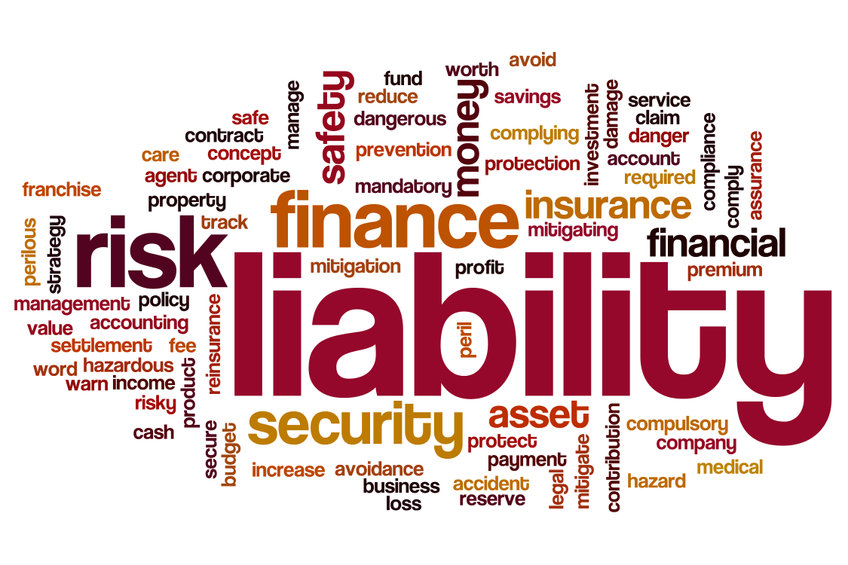
Thinking about what will help make your kiosk business grow? We are going to try and summarize the essential features that promote success, like the importance of kiosk business insurance, good marketing, solid finance and proper management.
Once your kiosk business has gone beyond a small startup, getting insurance should be your number one priority. Even if you think you’re safe, you never know what might happen.
What Are You Looking For?
Choose and Get Your Free Quote:👇️
General Liability Insurance ->
Professional Liability ->
Product Liability Insurance ->
Commercial Auto ->
Workers Compensation ->
Commercial Property ->
Other Business Insurance ->
If there is an accident, insurance will cover the costs for emergencies and hospital bills, as well as claims and other legal expenses. Always have a plan B and know that you are protected if something unforeseen happens. Liability insurance will protect you in the event something goes wrong.
What makes a kiosk business succeed?
Owning and running your own kiosk business needs care and attention to details. Businesses are like children – they need your love and care, but you must also dedicate your own time, discipline and attention. Here are a few basic steps you must take to help them grow and mature:
#1. Keep yourself aware of your market and of your competition
Business doesn’t happen in a vacuum. Customers of your kiosk business can be asking for new or different things all the time. Other operators may be entering your market and offering customers better or cheaper services than you are supplying.
Don’t rely on customer loyalty to beat your competition. When it comes down to customers making a choice between you and another business, dollars usually is the deciding factor.
#2. If you don’t have a business plan – write one
Creating and maintaining a solid business plan is important. A good business plan outlines the business’s long-term plans and strategy, including financial projections and goals. It can be used as an outline or guide when responding to changes by creating marketing materials, sales presentations, and advertising campaigns.
A business plan helps you focus on what needs to be done in the present, so that you are able to plan for their future. A business plan is also a great tool for establishing budgets and forecasting income and expenses.
A business plan should be created with customer service in mind, as it will help you understand your market better and how to improve customer satisfaction in the future.
#3. Get the right insurance for your growing kiosk business
There are a few things that you need to consider when your kiosk business is starting to grow and expand. You will now be exposed to higher risks that accidents can happen, things can go wrong or business can suddenly go bad due to factors outside of your control.
It helps to get professional opinions to help you find the right insurance at the best price.
All businesses have to face a lot of risks that may be detrimental to their financial well-being. One of the risks is a liability, which could take the form of a slip and fall, defective product, or improper service.
With good liability coverage, small business owners can protect themselves from unforeseen events and can grow at ease. With an understanding of these risks and how to cover them with insurance plans, kiosk business managers can make more informed decisions about their business growth.
One of the most important is liability insurance. When your kiosk business is seeing more potential customers, visiting more customer locations and selling more products and services, then the possibility of some small error or mistake is increasing enormously.
General liability insurance
The most important form of liability insurance is general liability. This is coverage that protects your kiosk business in the case of litigation and accidents, including bodily injury and property damage.
General liability is usually known as “trips and falls” cover, because the most frequent type of claim is when a visitor or any other third-party injures themselves (say be tripping over a loose floorboard or stepping into an uncovered hole in your workplace) and they injure themselves or damage their private property.
This insurance policy covers bodily injury and property damage in the event of an accident. It is a requirement for kiosk businesses that handle goods or interact with the public and have employees, or that engage in an activity in a place that is accessible to third parties.
The general liability insurance policy protects all business operations. It covers both direct and indirect losses, such as wrongful death, injury, pain and suffering, and emotional damage.
The causes can be accidents or employee negligence. Other cause like product liability, environmental contamination and business interruption must be covered separately.
Some general liability policies also cover specialities such as:
- Hiring contractors or employees who are not properly licensed to do so.
- Results of storing or handling materials and hazardous substances without proper care.
- Claims by other people for loss or damage to property because of the business’s negligence
- Liability arising from an advertisement
Professional liability insurance
This policy covers liability which may arise when your kiosk business or its employees:
- Fail to perform contracted services in a proper manner
- Fail to exercise ‘due care
- Break business rules which cause damage to personal property of others or damage to business property which causes loss or inconvenience to others (e.g. throwing objects and damaging the building)
- Damage or injure themselves by misusing business equipment, including computers and machinery.
You will be required to purchase a variety of insurance coverages for your new kiosk business.
Remember, business insurance is a necessary expense. It protects your kiosk business from lawsuits and other issues that can arise.
Beyond just general liability insurance, you should also consider specialized types that protect your kiosk business in specific areas such as intellectual property or property damage.
Business Income insurance
When your kiosk business has grown, you will likely be dependent on the profits for your income. Suppose there is some interruption to the business due to some unforeseen event, like a flooding, hurricane or earthquake that forces you to stop operations.
In that case, you will no longer have the income. However, you and the business will still have substantial costs, like wages for idle workers, rent, interest on loans, as well as your personal living expenses.
To protect your income, you can take out Business Interruption insurance that will provide you with enough cash flow until normal business can be restored.
#4. Use your existing knowledge of customers to help you grow
Businesses like yours that have been around for a while have an advantage because they already have customers and knowledge. They can presell products to those customers and use it as an investment in their future business.
This will help them get a head start on their competition, create loyal customers, and generate growth and expansion sooner than otherwise.
As a kiosk business, you should prioritize building your customer base. It is important to start building that base as early as possible because it will help you generate growth sooner than later.
For a business to improve its position, it needs to have customer feedback. This helps the business decide whether or not certain things should be kept, changed or removed altogether. The more feedback a business has, the better it will be able to grow and help its customers in the future. Feedback tools are available online.
Grow your small business with customer feedback by using these 3 steps:
- Find out what your users need or want
- Collect customer feedback
- Create a plan for how you will use this information to improve your service
#5. Strategies that you can use to grow your kiosk business.
5.1. Grow your audience by building a community
People today are turning to social media outlets such as Instagram, TikTok, Twitter and Facebook to find support, advice, and a sense of community. Businesses need to take advantage of these opportunities.
To grow your audience, your kiosk business needs to build a community. This is why it’s so important for businesses to get involved on the platforms where their potential customers interact, join in conversations, and share content.
5.2 Increase sales with marketing automation software
Businesses are now leveraging marketing automation software for more efficient operations. This includes automating social media outreach, building and managing email campaigns, and automating communications with clients.
Many businesses rely on marketing automation software to better automate their marketing efforts. We should not think of these tools as a replacement for traditional lead nurturing, but rather as a supplement to it.
5.3 Focus on the customer experience
Customers are the essential part of a business. You have to make sure that your customers feel satisfied with your product or service and are willing to buy it again. The customer’s focus on the customer experience is how a kiosk business distinguishes itself from its competition.
It helps establish brand credibility and loyalty. A recent study showed that 76% of consumers rank good customer service as one of their top 10 considerations when buying products or services, closely followed by value for money (71%).
5.4 Create content that creates value for your customers
Whether it is an ad or a blog post, every piece of content has one goal – to create value for the customers. Quality content is what attracts customers to your business and generates sales.
5.5 Build your brand
Businesses need a distinct brand for their products or services in order to compete in a market. In this way, building your brand can be like a kiosk business strategy.
5.6 Grow your team
When your kiosk business starts to expand, begin hiring more people than you need. This is because when you’re starting out, you don’t have the same amount of publicity and professionalism as more prominent companies do.
But as your business grows and becomes more established in the market, it will naturally start getting the attention it needs from bigger clients and customers.
When your business expands, one of the most important things to make sure of is that you’ve got a good team in place with all of the necessary skill sets for different roles so their growth can be executed effectively.
If you’re unsure how to grow your sales team when expanding, try this “3x-10x” Growth Formula.
3x-10x means your workforce will be three times larger than before if you plan for a 10x increase in sales.
As well, keep in mind that when your business’s number of employees grows, you may start to need extra insurance. In almost every state, a business with three or more full time, part-time or temporary employees will have to have Workers Compensation Insurance.
#6. Generate new leads on your website and social media
Lead generation is a critical aspect of any business but many kiosk businesses still struggle with getting leads and generating business. Lead generation aims to attract new customers or retain existing customers by generating qualified leads.
It is one of the most important tools for business growth through customer acquisition, retention, and loyalty. It can also help businesses generate quality leads from highly motivated visitors to the website.
The goals of lead generation are to increase brand awareness, acquire new customers, minimize churn and improve customer retention. The process can involve a variety of tactics in order to achieve these goals including:
- advertising campaigns
- direct mail marketing
- lead nurturing
- content marketing
- press releases.
A key metric used in lead generation is the number of qualified leads generated over the course of a year.
Lead generation comes in many shapes and sizes. The following are some of the methods you could use to generate leads:
- Online advertising
- Email marketing
- PPC (pay per click) campaigns
- Cold calling
It is difficult to figure out which lead generating approach would work best for your specific kiosk business because there are too many factors that influence whether a particular strategy will be successful.
A business needs to understand the competitors in their area and sector, as well as their current customers, before deciding on which marketing approach they should take. For example, you have to consider what your competitors are doing.
#7. Advertise on the internet even with a limited budget
Online marketing is a critical component of any kiosk business’s growth strategy. A well-planned strategy will lead to an increased customer base, better business growth and improved customer satisfaction. Just like other businesses, you need to invest in online marketing in order to reap the fruit of your labor. .
When you’re on a small budget, the best part about social media marketing is that a lot of it is free. There are many social media platforms that you can use for free like Facebook, Twitter, LinkedIn, Instagram, TikTok etc.
The downside of using these platforms is that you have limited power to market your kiosk business in your own format. Paid advertising on the internet is a relatively new feature for a growing kiosk business and you may need some help to be spending your money properly.
Internet advertising can be a powerful tool that drives traffic, and boosts your sales and engagement. You should use keywords that are important to your business and what people are searching for.
Create ads that include a call-to-action (CTA) and the option to track conversions online. Use keywords that are specific to your kiosk business to drive traffic to your website, which would help boost sales and engagement.
Suppose you’re a kiosk business planning to widen your area of operations. In that case, it’s crucial that you optimize your website to make it accessible to more and more customers from mobile devices.
One of the most effective social media marketing techniques is to use big data and machine learning technologies. This will allow you to collect more information about your customers, their purchases, and the people who are talking about your brand. Use this information to generate mail-out campaigns that target customers in specific age/gender/ income/location groupings.
This can help you identify trends in behavior, optimize marketing campaigns and find new ways to interact with your customers. It’s better than spending lots of money on untargeted broadcasts that will mostly end up in the trash can.
FAQ
What can help make a kiosk business grow?
The success of a kiosk business is 100% dependent on the owner. If you are the only person in your small business, then you are the one who will be able to provide feedback on how everything is going. However, suppose you have employees or other stakeholders. In that case, it may feel difficult to see what exactly you need to do in order to keep your business successful.
What is a good growth strategy for a kiosk business?
A good growth strategy for a kiosk business is to focus on the market that you are targeting. It’s important to know what your target market needs and to make sure that you are providing them with what they need.
This is one of the many ways for a business to grow.
How fast can a kiosk business grow?
There is no fast way of growing a business. However, there are some things that you can do to ensure quick and efficient growth. One of the most important things that must be done by any kiosk business owner is to create a marketing plan.
As fast as it takes for your businesses to grow, you need to be able to adapt if your product or service undergoes any changes. When this happens, it becomes imperative for the marketing plan to change and adapt with them so that they remain relevant in today’s market and are also able to reach the target audience with ease.
Small businesses have no choice but to find ways of scaling themselves quickly, with social media being one of the most effective methods for advertising at scale. This is because social media lowers costs and allows you to spread awareness for yourself very quickly.
- Brainstorm ideas using a marketing plan that is designed to scale
- Define the marketing funnel or funnel in the business plan
- Identify the customers who are most important for your business and those whom you want to reach
- Set goals for each campaign
- Create a plan for each campaign
- Monitor and measure the results
How do you drive business growth?
Growth is the key to a successful kiosk business. It can be achieved through marketing, which is why it’s important for marketers to keep up with the latest trends and innovations in digital marketing.
Marketing is one of the most important aspects in any business, and it’s also one of the most difficult to master. It takes a lot of time, energy and effort to learn how to market your product or service effectively.
There are many different ways that you can drive business growth through marketing:
- Increase sales
- Increase brand awareness
- Increase customer loyalty

















